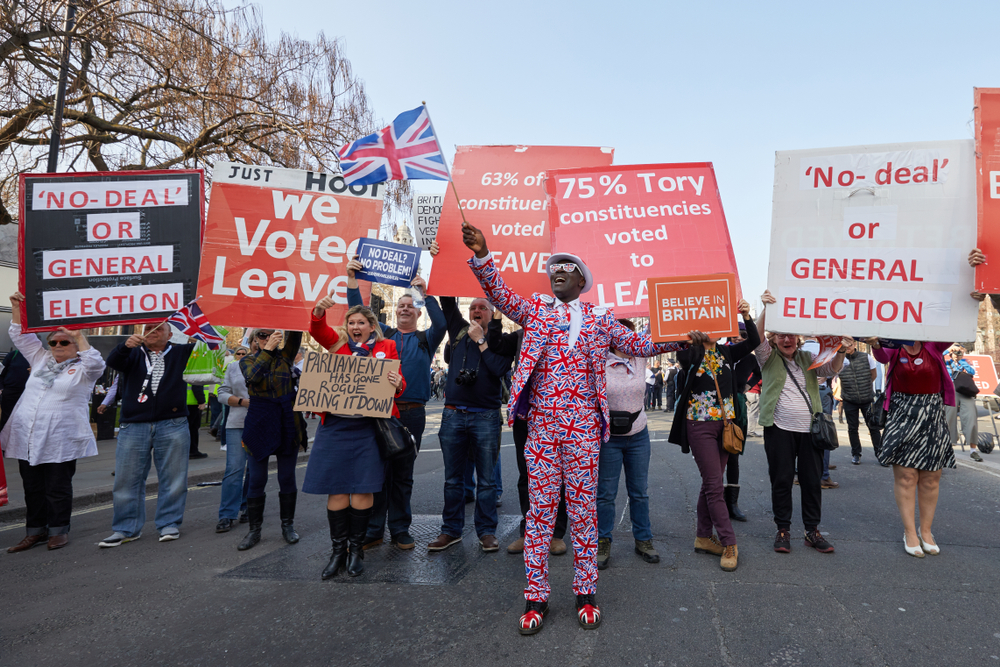
A ‘delayed no deal’ is under-priced. How should the government prepare for it? | thearticle
- Select a language for the TTS:
- UK English Female
- UK English Male
- US English Female
- US English Male
- Australian Female
- Australian Male
- Language selected: (auto detect) - EN
Play all audios:

Today’s developments seemed to confirm that there is almost no chance the UK and the EU will agree a Brexit deal before 31 October. Even discounting the war of words and the increasingly
belligerent noises coming out of Downing Street, the two sides are miles apart on the substance. The EU views UK proposals for customs checks in Northern Ireland as a non-starter, and EU
counter-offers to keep either Northern Ireland or the whole UK in a customs union are equally unacceptable to this UK government. Politically, the Benn Act also undermines the credibility of
threats to leave with no-deal on 31 October; the EU therefore has little incentive to consider UK demands. However, the Benn Act merely requires the prime minister to seek an extension; it
does not take no-deal off the table altogether. After all, no-deal has resurfaced this autumn after a six-month extension was granted in April, so there is every reason to believe it would
do the same if another extension is granted this month. This is particularly the case if there is a general election, which could easily lead to a Conservative majority government elected on
a platform of leaving the EU by whatever means necessary. With that in mind, government and businesses need to keep preparing for no-deal – and the public and the media need to be aware of
the issues. The government also needs to be ready to spring into action after no-deal happens – preparation before is only half the battle. As Open Europe’s new report on no-deal argues,
much of the short-term disruption of no-deal is manageable – but only if the government responds in the right way. People is one example of this. Michael Gove was right to point out today
that the UK has taken a more generous approach to citizens’ rights than the EU; our analysis reached the same conclusion. But the government needs to do more to reassure both EU nationals
and employers. While no-deal will not be a ‘cliff-edge’ for citizens’ rights, there are widely reported problems with the EU Settlement Scheme that need to be addressed. The government
should also consider a more liberal immigration policy than is currently planned, such as by reconsidering the £30,000 ‘salary cap’ on skilled migrants. Ensuring the ports function smoothly
is also a vital part of no-deal planning, which could make or break a successful response to no-deal. If there are major delays at ports, the flow of vital goods like medicines and food
could be disrupted – whereas if the ports work, disruption to imports should be relatively mild. The government also needs to do all it can to ensure goods can flow smoothly out of the
country too; the integrated nature of modern supply chains means that outbound delays would quickly have a knock-on effect in the other direction. One way to deal with this would be to
pre-clear goods intended for export well away from ports, to prevent non-compliant exporters from arriving at Dover and causing delays for everyone else. On tariffs, the government is right
to take a broadly liberal approach. There are certainly problems with the recently updated no-deal tariff regime – such as the strange decision to add further tariffs on clothing (where the
UK is not a major producer). But the bigger problem is the lack of clarity about the UK’s long-term tariff regime; it is due to expire after a year, which offers little certainty for
businesses. For the wider economy, no-deal is generally expected to be a drag on the UK’s medium-term growth. Nevertheless, there are various levers the government can pull on tax,
regulation, spending and investment to boost competitiveness and keep the UK open to business. Some of these levers will be politically controversial, and may only be available to a
government with a parliamentary majority. Nevertheless, their availability demonstrates that no-deal is not the only determinant of the UK’s economic fortunes for the next decade. How the
government responds is just as important.
